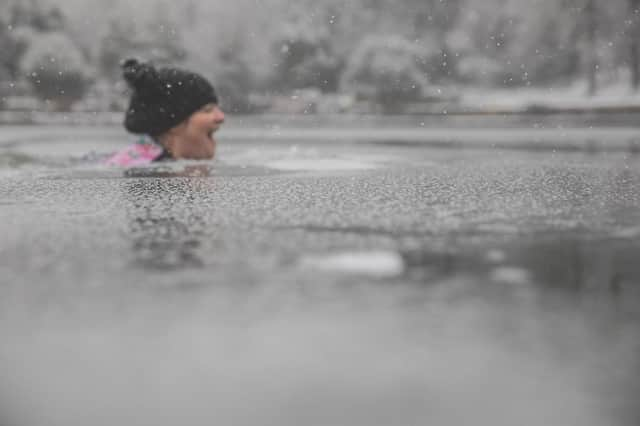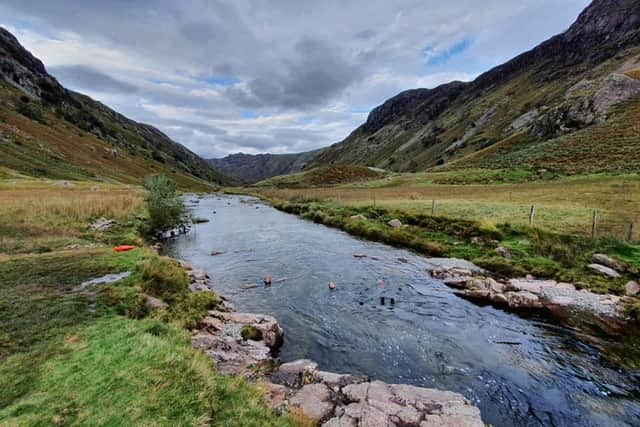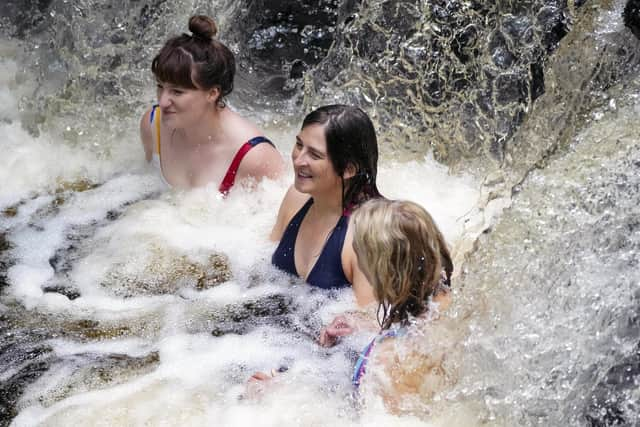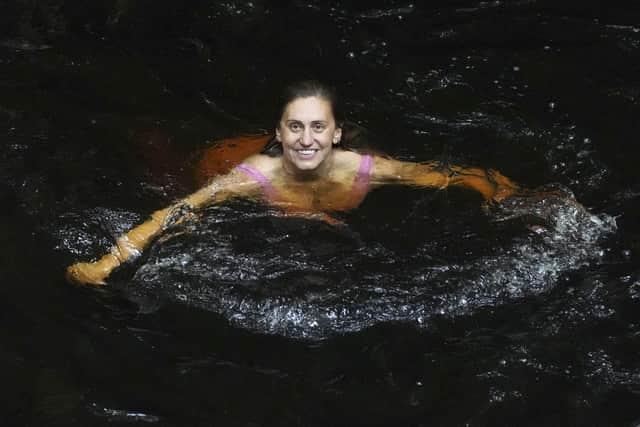Education is all when it comes to wild swimming in and around Sheffield


In the last few years however, it has slowly become the adventurous pursuit du jour. Books have been written extolling its virtues, its health benefits and the pure, adventurous fun. Wild swimming hot-spots are now all over the internet and groups bringing a social element to the pastime are growing in popularity.
During the pandemic, Sheffield Outdoor Plungers (SOUP), a wild swimming Facebook group, doubled in size to over ten thousand members. Interest in outdoor swimming has soared with numerous people enrolling on open water swimming courses and joining online talks to learn about safety. Advice has been plentiful, encouraging people to be careful, get used to cold water, tune into their bodies and take time to gain experience and knowledge.
Advertisement
Hide AdAdvertisement
Hide AdAt the same time, the great outdoors has seen a massive increase in the number of people lured by its beauty. Footfall has grown exponentially and the number of people who have little understanding of the dangers of open water have hurled themselves into reservoirs, rivers and ponds. Many have left litter, risked moorland fires by using disposable barbecues and damaged important wildlife habitats by entering the water in the wrong place.


The response from water companies has inevitably been somewhat panic stricken. There have been fatalities over the last year which, in their opinion, places a duty of care on the water companies. Worried about liability and Health and Safety issues, they have vilified all those who wild swim. They have employed security personnel who have, on occasion, been incredibly undiplomatic in dealing with swimmers, using dogs to terrify them.
By contrast, some land managers have a much more subtle approach. Danny Udall of the Eastern Moors Partnership has tried to take a more radical position. He is concerned about safety. He is concerned that some swimmers enter the water in the wrong place and endanger important wildlife habitats. But he also values that engagement with the natural world.
Danny Udall’s rationale is that education is everything. Encouraging people to take care of wildlife, be safe and leave no trace is his main tactic. His staff talk to wild swimmers, point out the correct places to enter the water and ask people to think twice about swimming if there is a large number of people already there. They also urge them to stay safe.
Advertisement
Hide AdAdvertisement
Hide AdThis country has a significantly restrictive attitude to accessing the countryside. We have access to approximately seven per cent of our land and wild swimmers and canoeists can utilise a tiny proportion of the rivers, lakes and reservoirs in this country.


Sixty million people can enjoy a tiny percentage of the UK while a few thousand rich folk own a large proportion of the rest and restrict access.
While it is understandable that water companies have reservations about swimming in their lakes, it does pose some serious questions. The duty of care placed on land owners and water companies is debateable. Swimmers, mountain bikers, climbers, all adventurous sports entail risk.
If you get it wrong it is, effectively, your responsibility. Water companies highlight the dangers of swimming in open water at all of their sites, placing responsibility on those who decide to swim.
Advertisement
Hide AdAdvertisement
Hide AdEducation is essential. Teaching kids at school how to swim, how to stay safe and how to act in important habitats should become the norm. We could reduce the number of fatalities and increase the general level of fitness. Introducing kids to dangerous sports teaches them to deal safely with it. Wrapping them in cotton wool is regressive.


Owen Hayman who formed SOUP understands the issues facing the water companies but contends that simply banning swimming achieves little. He accepts that keen wild swimmers know how to stay safe but can, by their presence, encourage other people to enter the water.
However, those who are determined to have a picnic and drink some beer will always ignore restrictions. Owen believes that the only way to deal with this is education and asserts that experienced swimmers being in the water can influence how people act and, potentially, save someone who gets into trouble.
The massive increase in membership of SOUP is a case in point. The group constantly encourages swimmers to do the right thing and stay safe and be environmentally responsible. They co-operate with key land owners with the aim of improving open water safety overall through education. This is exactly what has happened in the past with other adventure user groups such as the British Mountaineering Council and Ride Sheffield.
Advertisement
Hide AdAdvertisement
Hide AdTalk to those who look after our precious landscape and you immediately foster a sense of inclusion. That in turn ensures the sense of ownership of these fragile landscapes increases and people will strive to help look after them.
It’s time for those who own the countryside to learn to deal more sympathetically with those determined to use it for enjoyment, to engage with the natural world and hone their fitness. The British public have every right to enjoy their country, those who own it need to take a long hard look at themselves.